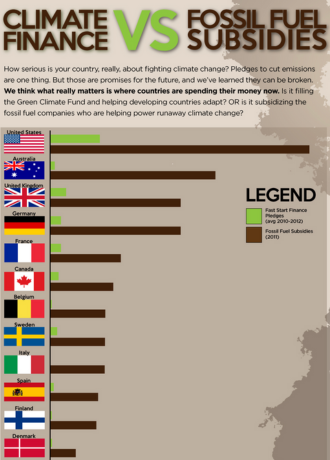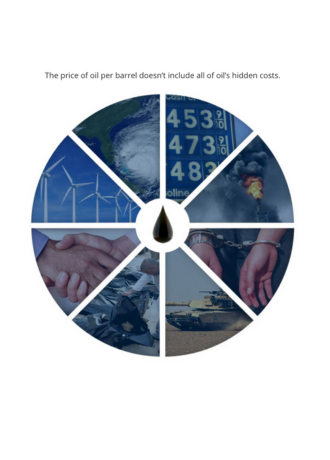
Keystone XL refineries already exporting 60 percent of their gasoline
New data reveals that a full 60 percent of gasoline produced at Keystone XL refineries was exported.
Oil Change International publishes upwards of 20 reports and briefings every year focused on supporting the movement for a just phase-out of fossil fuels.

New data reveals that a full 60 percent of gasoline produced at Keystone XL refineries was exported.

Existing analyses of the impacts of tar sands fail to account for a byproduct of the process that is a major source of climate change causing carbon emissions: petroleum coke - known as petcoke. Petcoke is the coal hiding in North America's tar sands oil boom.

Here in Doha for the UN climate negotiations, we've just released new analysis that shows that fossil fuel subsidies in rich countries are, on average, five times greater than those same countries' pledges towards climate finance.

In the world today, global warming is our collective cancer, and despite dire and clear warnings, the oil industry is still smoking away. The best climate science in the world tells us that in order to avoid the worst impacts of climate change, we need to limit global warming to no more than 2 degrees Celsius. But the amount of new oil production the industry is bringing online over the next eight years is exponentially more than we can afford to burn and stay under two degrees. We simply cannot afford to burn all the oil that the industry is capable of producing over the next few years, and in the long term.

The price of oil per barrel doesn’t include all of oil’s hidden costs. Learn more about the true cost of oil by using the flash navigation tool.

In our second review of progress in meeting this phase out commitment we conclude that the G20 effort is currently failing.

Our latest report finds that global fossil fuel production and consumption subsidies are at least $775 billion annually and could be $1 trillion or even more. There is an urgent need for transparency in subsidy reporting.

In this graphic, you can see that according to Oil Change International analysis, governments around the world are spending perhaps more than $1 trillion USD combined per year subsidizing the fossil fuel industry.